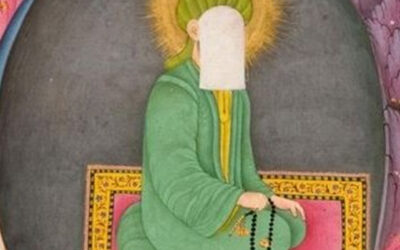Islamophobia And Rational fear

In recent years, the term “Islamophobia” has become a powerful tool in public discourse, often used to silence criticism of Islam by framing it as irrational hatred or prejudice. While hate toward any group of people is unquestionably wrong, conflating criticism of a belief system with bigotry is intellectually dishonest. This term serves to shield the ideology of Islam from scrutiny, discouraging legitimate questions about its sacred texts, historical actions, and societal impact. Fear of Islam is not irrational; it is often rooted in well-documented traditions, actions, and teachings that demand critical examination.
The fear many people feel toward Islam is not driven by an inherent bias against Muslims as individuals but rather by the contents of Islam’s sacred texts, its historical legacy, and its influence on modern societies. For instance, the Quran includes numerous verses that explicitly call for violence against non-Muslims. Surah 9:29 states: “Fight those who do not believe in Allah or in the Last Day and who do not consider unlawful what Allah and His Messenger have made unlawful and who do not adopt the religion of truth from those who were given the Scripture, fight until they give the jizyah “special tax” willingly while they are humbled.” Such verses inspire fear because they have been used throughout history to justify conquest, subjugation, and violence against non-Muslims.
Many Muslims today openly discuss their aspirations for global Islamic dominance, citing scripture as their justification. Groups like ISIS, Al-Qaeda, and Boko Haram are extreme examples, but even within more moderate circles, concepts such as Sharia law’s supremacy over secular governance are regularly championed. This is not to suggest that all Muslims hold these views, but the fact that such ideologies find explicit grounding in Islamic texts makes the fear of Islam, as an ideology, a rational response.
The Concept of Abrogation: A Cancelation of Peaceful Verses
One of the most troubling aspects of Quranic interpretation is the doctrine of abrogation (naskh), which holds that later revelations can override earlier ones. The peaceful verses often cited by apologists, such as “there is no compulsion in religion” (Surah 2:256), are effectively nullified by later verses that advocate violence and coercion. Surah 9:29, as noted earlier, is among the most cited abrogating verses, which replaces earlier conciliatory messages with commands to wage war against non-believers.
This principle has profound implications. It allows for a dualistic interpretation of Islam, whereby peaceful verses can be showcased to non-Muslims while the more violent ones remain operative within Islamic theology. This duality breeds mistrust and fear because it creates an ambiguity about Islam’s true intentions.
Muhammad’s Actions: A Legacy of Violence and Intolerance
The actions of Islam’s founder, Muhammad, are another source of fear and concern. Historical accounts document numerous instances where Muhammad ordered the assassination of individuals who criticized him. For example, the poetess Asma bint Marwan was killed at Muhammad’s behest for composing verses critical of him. Similarly, the elderly Um Qirfa was brutally executed for opposing him. Khalid ibn al-Walid, one of Muhammad’s generals, carried out acts of violence that included the killing of prisoners of war and those who refused to convert to Islam.
These actions and countless examples of other incidents are not simply historical footnotes; they serve as precedents within Islamic jurisprudence. For many Muslims who revere Muhammad as the “perfect example” (Surah 33:21), his deeds provide justification for acts of violence against critics and dissenters even today.
The Corruption of Imagination: Promises of Sexual Rewards in the Afterlife
One of the more peculiar aspects of Islamic eschatology is its fixation on sexual rewards in the afterlife. The Quran and Hadiths promise male believers an eternity with “hoor al-ain” (pure, untouched women), describing them in explicitly sexual terms. This focus distorts human imagination and moral priorities. In many Islamic cultures, where sexual expression is heavily suppressed, these promises create a dichotomy that nurtures unhealthy attitudes toward sex.
The result is a culture where sexual harassment and abuse are rampant. Suppressed desires in this life, combined with the glorification of sexual indulgence in the next, create a psychological environment ripe for confusion and exploitation. The objectification of women as both earthly possessions and heavenly rewards undermines respect for gender equality and promotes toxic attitudes toward women.
Islam’s View of Non-Muslims: A Doctrine of Inequality
Islam’s sacred texts and jurisprudence place non-Muslims in a subordinate position to Muslims. For instance, in Islamic law, the killing of a non-Muslim by a Muslim is treated less severely than the killing of a Muslim. Non-Muslims under Islamic rule are required to pay the jizyah tax as a sign of submission, and their wealth and women are considered lawful spoils of war (ghanima).
The concept of sabaya (female captives of war) further illustrates the dehumanizing treatment of non-Muslims. Women captured in battle can be taken as concubines or slaves, as sanctioned by Islamic texts and historical precedent. While many modern Muslims reject these practices, the fact that they are deeply embedded in foundational texts makes their potential resurgence a valid concern for non-Muslims.
Dar al-Salam and Dar al-Harb: Dividing the World
Islamic theology divides the world into two distinct categories: Dar al-Salam (the Land of Peace) and Dar al-Harb (the Land of War). Dar al-Salam refers to regions under Islamic rule, where Sharia law is enforced, and Islam is the dominant faith. Conversely, Dar al-Harb includes all non-Islamic territories, which are often viewed as zones of conflict until they are brought under Islamic governance. This dichotomy furthers a perpetual state of tension between the Muslim and non-Muslim worlds, as the ultimate aim of Islamic doctrine is to expand Dar al-Salam through conversion, subjugation, or military conquest. This worldview has historically justified countless campaigns of war and has contributed to the apprehension non-Muslims feel toward Islamic ideology.
The Role of Fear and Terror in Islamic Strategy
Surah 8:60 states: “Prepare against them whatever you are able of power and of steeds of war by which you may terrify the enemy of Allah and your enemy.” This verse explicitly instructs Muslims to employ terror as a strategy. While not all Muslims adhere to this command, it is sufficient for a small minority to take it seriously to instill widespread fear. Groups like ISIS have demonstrated how such verses can be weaponized to justify acts of extreme brutality, from beheadings to mass executions.
The Quran’s frequent invocation of Allah as a vengeful deity who “heals the chests of believers” through the destruction of enemies (Surah 9:14) reinforces a culture of vengeance rather than empathy. This theological framework has had cultural consequences, as evidenced by the celebration of tragedies like the wildfires in LA this week by some Muslims on social media. Such reactions stem from a deeply ingrained sense of hostility towards non-Muslims.
Islamophobia: A Shield Against Scrutiny
The term “Islamophobia” has been weaponized to shut down critical discussions about Islam. It conflates legitimate concerns about ideology with irrational hatred toward individuals, creating an environment where meaningful critique is dismissed as bigotry. This stifles free speech and prevents societies from addressing the very real issues posed by extremist interpretations of Islam.
Criticism of Christianity, Judaism, or any other religion is rarely met with the same level of hostility or censorship. Yet, Islam is often placed in a protected category, immune from scrutiny. This double standard is dangerous. Open societies thrive on the free exchange of ideas, including the right to critique religious ideologies. Suppressing this dialogue under the guise of combating “Islamophobia” does a disservice to both Muslims and non-Muslims by preventing the honest examination of the challenges posed by certain aspects of Islamic doctrine.
Fear of Islam is not an irrational phobia; it is a rational response to the troubling aspects of its sacred texts, historical legacy, and influence on modern society. While not all Muslims adhere to these teachings, the potential for violence and intolerance rooted in Islamic doctrine is undeniable. Addressing these issues requires courage and a commitment to free speech.
The term “Islamophobia” must not be allowed to silence legitimate criticism. If societies are to adopt genuine coexistence, they must uphold the right to scrutinize all belief systems, including Islam. This is not an act of hatred but a necessary step toward understanding and addressing the ideologies that shape our world. Only through open dialogue and honest critique can we hope to confront the challenges posed by religious extremism and build a more just and compassionate society.
![]() About the Author
About the Author

DANNY BURMAWI
Danny Burmawi is an Author, speaker, an advocate for religious liberty, and rational thought, a content creator, and social entrepreneur with a passion for transformative media and advocacy.
Realated Posts
Islam’s Mere Presence: How an Imported Ideology Destroys Civilization
Islam’s Mere Presence: How an Imported Ideology Destroys Civilization In his book "The Ominous Parallels", Leonard Peikoff demonstrated a profound truth: history is shaped not by brute force alone, but by ideas. When irrational, collectivist, and self-sacrificial...
Muhammad: The Man Who Replaced God in Islamic Consciousness
Muhammad: The Man Who Replaced God in Islamic Consciousness In Islamic practical theology, Muhammad does not merely represent a prophet, he overshadows Allah himself. While Muslims claim to worship one God, the emotional, psychological, and even liturgical weight...
Islam and Lawrence Kohlberg 6 stages of moral development
Islam and Lawrence Kohlberg 6 stages of moral development In psychology, there's a theory by Lawrence Kohlberg that explains how people develop their sense of right and wrong. He says we grow through three main levels, six stages in total. As we mature, we’re...


